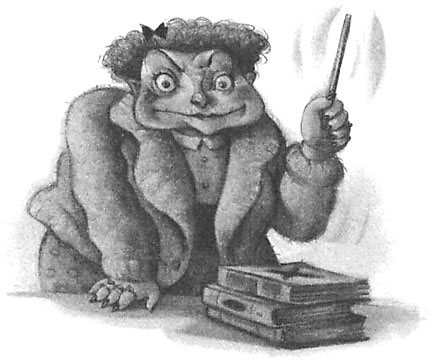Whoa. I've just read an article in The Atlantic Monthly, and let me tell you, it is a doozy. Entitled Cultivating Failure, the article disses California teachers and administrators who espouse gardening in school in addition to readin', ritin', and 'rithmetic.
It's a rant designed, it seems, to bring progressive educators, anyone who disagrees with author Caitlin Flanagan's near-Puritanical viewpoint about the 3 R's and, one imagines, garden-lovers, to spluttering rage. I must say, it worked on me. If you have a few minutes and feel like you haven't done enough spluttering today, go read it - and then come back, and let me know what you have to say. Go on, I'll wait for you.
So, what'd you think? Were you able to get past the deliberately inflammatory language, like the part where the author calls those who eat at Alice Waters' Chez Panisse restaurant "ACORN-loving, public-option-supporting [men] or [women] of the people"? Or, where she compares time spent by children gardening in school to sharecropping in the Jim Crow south?
The reader certainly gets a sense of what Flanagan feels kids should be doing in school instead of gardening: they should spend their entire schooling - 12,960 hours over twelve years of school, by my count - bent over their books, learning math and reading. Anything else, she seems to believe, is positively criminal, judging by her references to 'precious school hours' that should be spent, for example, 'writing paragraphs on The Crucible.'
But here is my question: isn't the kind of school that Flanagan wants a prison in itself? Isn't it a great way to turn children off to the excitement of learning? I think my head might explode if I spent six hours a day in instructional time, and I'm an adult without the energy level of a typical five-year-old! The author is very Professor Umbridge-y in her viewpoint about school, even as she claims to know how to teach children best.

Repeatedly, the value of a good education is reduced in this article to a score on a test. The question 'why learn?' is answered, both overtly and subtly, with 'to get into college' or 'to score well.' There is absolutely no discussion of creativity, curiosity, the thrill of figuring something out.
I think that this is because the gist of the article is that gardening in school is especially bad for - and a tremendous insult to - poor, minority students whose parents or grandparents picked (or even still pick) food in orchards owned by others. And I'm not saying that the situation for poor minority families in California is a good one - but, once they pass the test and get that all-important piece of paper that says they passed the test, what do the sons and daughters do then? Start working at some crummy job, exchanging mindless button-pushing for tomato-picking?
Maybe that is what they do; while I've always been lucky enough to have food on the table, I've worked some crummy jobs in my time. But when I wasn't cleaning toilets or laundering the skivvies of total strangers, I was still using my brain, reading because I wanted to, or playing board games because I couldn't afford a tv, or going for a walk or even... wait for it... gardening.
Because my curiosity and love of learning was NOT squelched by endless drilling in school. I went on field trips, performed science experiments, had the extreme luxury, by today's standards, of two recesses per day until sixth grade and gym twice a week, and spent plenty of time just playing with classmates. I learned that learning is about more than the times tables and how to tell a subject from a predicate.
I kept thinking about The Alliance for Childhood while I read Flanagan's article about how bad gardening is for children, and how offensive we should all find gardening in school especially if our forbears relied on manual labor (as mine did) for a living.
The Alliance for Childhood is a group of educators including some of my heroes in the field, like Dr. David Elkind, child development specialist and author of The Hurried Child and Miseducation: Preschoolers at Risk, Sue Bredekamp, who co-wrote Developmentally Appropriate Practice, a book I reference even in homeschooling, and Alfie Kohn, who writes so persuasively against standardized testing. Two of them, Joan Almon and Edward Miller, have written a mind-blowing paper,Crisis in the Kindergarten: Why Children Need to Play in School, in which they review several studies about how much time young children spend in teacher-directed activities (like math and reading) versus child-directed ones (like recess and imaginative play). Any guesses about how much time kids spend in each? Here's a hint: mostly teacher-directed and nearly none, or actually none, child-directed.
Miller and Almon also discuss the ramifications, for children and our entire society, of the overwhelmingly teacher-directed world school has become for Kindergarteners, and it's not good:
As one kindergarten teacher put it, “If I give the children time to play, they don’t know what to do. They have no ideas of their own.” This is a tragedy, both for the children themselves and for our nation and world. No human being can achieve his full potential if his creativity is stunted in childhood. And no nation can thrive in the 21st century without a highly creative and innovative workforce. Nor will democracy survive without citizens who can form their own independent thoughts and act on them. (Crisis in the Kindergarten, pg. 8)
But, what is the power of a child's own ideas compared with a great score on a test? I guess that is the real question.















